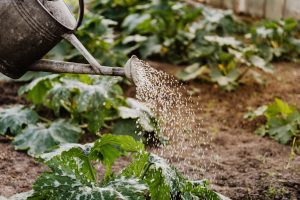As the days grow shorter and the air turns cooler, it’s time to start thinking about preparing your garden for the winter season. While the idea of putting the garden to rest may seem straightforward, many homeowners make simple mistakes that can harm their plants, soil, or garden tools.
Neglecting to Clean Up Debris
 One of the most frequent mistakes homeowners make is failing to clean up garden debris before winter sets in. Fallen leaves, dead plants, and garden waste can create a perfect environment for pests and fungi to thrive during the cold months. Leaving these materials in your garden beds can lead to diseases that affect your plants come springtime. Taking the time to clear your garden of any debris can significantly reduce the risk of pest infestations. It’s important to remove any diseased plants, fallen fruit, or decaying vegetation that could harbor pests. Cleaning up your garden gives your plants the best chance at surviving winter and prevents a buildup of harmful elements that could disrupt the growth cycle.
One of the most frequent mistakes homeowners make is failing to clean up garden debris before winter sets in. Fallen leaves, dead plants, and garden waste can create a perfect environment for pests and fungi to thrive during the cold months. Leaving these materials in your garden beds can lead to diseases that affect your plants come springtime. Taking the time to clear your garden of any debris can significantly reduce the risk of pest infestations. It’s important to remove any diseased plants, fallen fruit, or decaying vegetation that could harbor pests. Cleaning up your garden gives your plants the best chance at surviving winter and prevents a buildup of harmful elements that could disrupt the growth cycle.
Improperly Pruning Trees and Shrubs
Another mistake that many gardeners make is improper pruning of trees and shrubs before winter. While it might seem like a good time to trim back your plants, over-pruning or cutting back too late in the season can damage the plant or make it more vulnerable to winter stress. Pruning at the wrong time can expose new growth to freezing temperatures.
This will cause it to die off before the spring. To prevent damage, it’s best to prune trees and shrubs in late fall, just before the cold really sets in. Focus on removing dead or damaged branches rather than cutting back healthy growth. By doing this, you’ll help your plants remain strong and resilient through the winter months.
Overwatering or Underwatering Plants
 Watering your plants correctly during the winter months can be tricky, and homeowners often make the mistake of overwatering or underwatering their garden. Overwatering in winter can cause the soil to become waterlogged, which may lead to root rot or fungal infections. On the other hand, too little water can stress your plants and cause them to dry out during the colder months. To strike the right balance, make sure to water your garden deeply but less frequently as the weather cools. Plants still need moisture during the winter, but they don’t require as much as in the warmer months.
Watering your plants correctly during the winter months can be tricky, and homeowners often make the mistake of overwatering or underwatering their garden. Overwatering in winter can cause the soil to become waterlogged, which may lead to root rot or fungal infections. On the other hand, too little water can stress your plants and cause them to dry out during the colder months. To strike the right balance, make sure to water your garden deeply but less frequently as the weather cools. Plants still need moisture during the winter, but they don’t require as much as in the warmer months.
Ignoring Garden Tools and Equipment Maintenance
Many homeowners overlook the importance of maintaining their garden tools and equipment before winter. Blades can become dull, rust can form, and dirt can build up, making it difficult to use your tools when spring rolls around. Failing to clean and store your garden tools properly during the winter can lead to costly repairs or replacements.
Before the cold weather hits, take the time to clean, sharpen, and oil your tools. Make sure to store them in a dry place to prevent rust. Keeping your equipment in good condition will save you time and money when the gardening season begins again.
